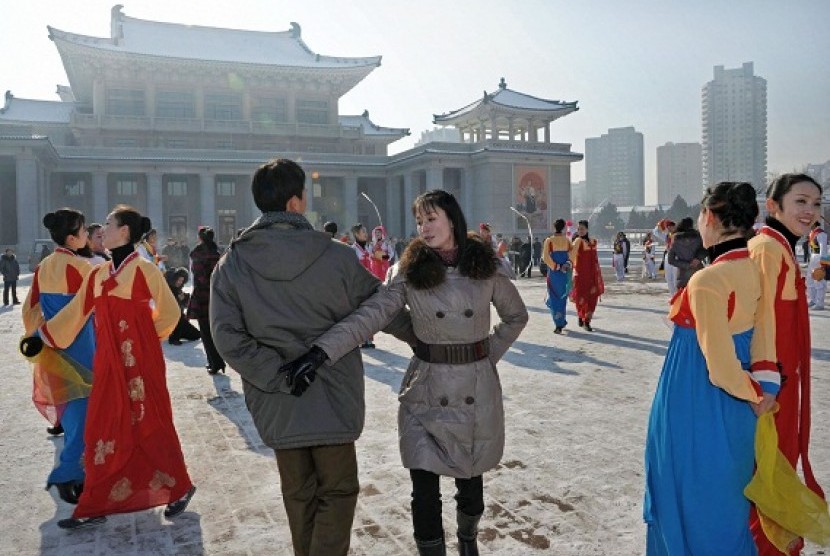REPUBLIKA.CO.ID, SEOUL/TOKYO - North Korea successfully launched a rocket on Wednesday, boosting the credentials of its new leader and stepping up the threat the isolated and impoverished state poses to opponents.
Kim Jong-un, believed to be 29 years old, took power when his father died on Dec. 17 last year and experts believe the launch was intended to commemorate the first anniversary of his death. The April launch was timed for the centennial of the birth of Kim Il Sung.
The rocket, which North Korea says put a weather satellite into orbit, has been labeled by the United States, South Korea and Japan as a test of technology that could one day deliver a nuclear warhead capable of hitting targets as far away as the continental United States.
"The satellite has entered the planned orbit," a North Korean television news reader clad in traditional Korean garb announced, after which the station played patriotic songs with the lyrics "Chosun (Korea) does what it says".
The rocket was launched just before 10 am (0100 GMT), according to defense officials in South Korea and Japan, and was more successful than a rocket launched in April that flew for less than two minutes.
The North American Aerospace Defense Command (NORAD) said that it "deployed an object that appeared to achieve orbit", the first time an independent body has verified North Korean claims.
North Korea followed what it said was a similar successful launch in 2009 with a nuclear test that prompted the UN Security Council to stiffen sanctions that it originally imposed in 2006 after the North's first nuclear test.
North Korea is banned from developing nuclear and missile-related technology under UN resolutions. North Korea hailed the launch as celebrating the prowess of all three members of the Kim family to rule since it was founded in 1948.
"At a time when great yearnings and reverence for Kim Jong-il pervade the whole country, its scientists and technicians brilliantly carried out his behests to launch a scientific and technological satellite in 2012, the year marking the 100th birth anniversary of President Kim Il Sung," its KCNA news agency said. Kim Il Sung, the current leader's grandfather, was North Korea's first leader.
Draw criticism
The United States condemned the launch as "provocative" and a breach of UN rules, while Japan's UN envoy called for a Security Council meeting. However, diplomats say further tough sanctions are unlikely from the Security Council as China, the North's only major ally, will oppose them.
"The international community must work in a concerted fashion to send North Korea a clear message that its violations of United Nations Security Council resolutions have consequences," the White House said in a statement.
US intelligence has linked North Korea with missile shipments to Iran. Newspapers in Japan and South Korea have reported that Iranian observers were in the North for the launch, something Iran has denied.
Japan's likely next prime minister, Shinzo Abe, who is leading in opinion polls ahead of an election on Sunday and who is known as a hawk on North Korea, called on the United Nations to adopt a resolution "strongly criticizing" Pyongyang.
A North Korean Foreign Ministry spokesman reiterated that the rocket was a "peaceful project".
"The attempt to see our satellite launch as a long-range missile launch for military purposes comes from hostile perception that tries to designate us a cause for security tension," KCNA cited the spokesman as saying.
China had expressed "deep concern" prior to the launch which was announced a day after a top politburo member, representing new Chinese leader Xi Jinping, met Kim Jong-un in Pyongyang.
On Wednesday, its tone was measured, regretting the launch but calling for restraint on any counter-measures, in line with a policy of effectively vetoing tougher sanctions.
"China believes the Security Council's response should be cautious and moderate, protect the overall peaceful and stable situation on the Korean peninsula, and avoid an escalation," Chinese Foreign Ministry spokesman Hong Lei told journalists.
Bruce Klingner, a Korea expert at the Heritage Foundation, said: "China has been the stumbling block to firmer UN action and we'll have to see if the new leadership is any different than its predecessors."


